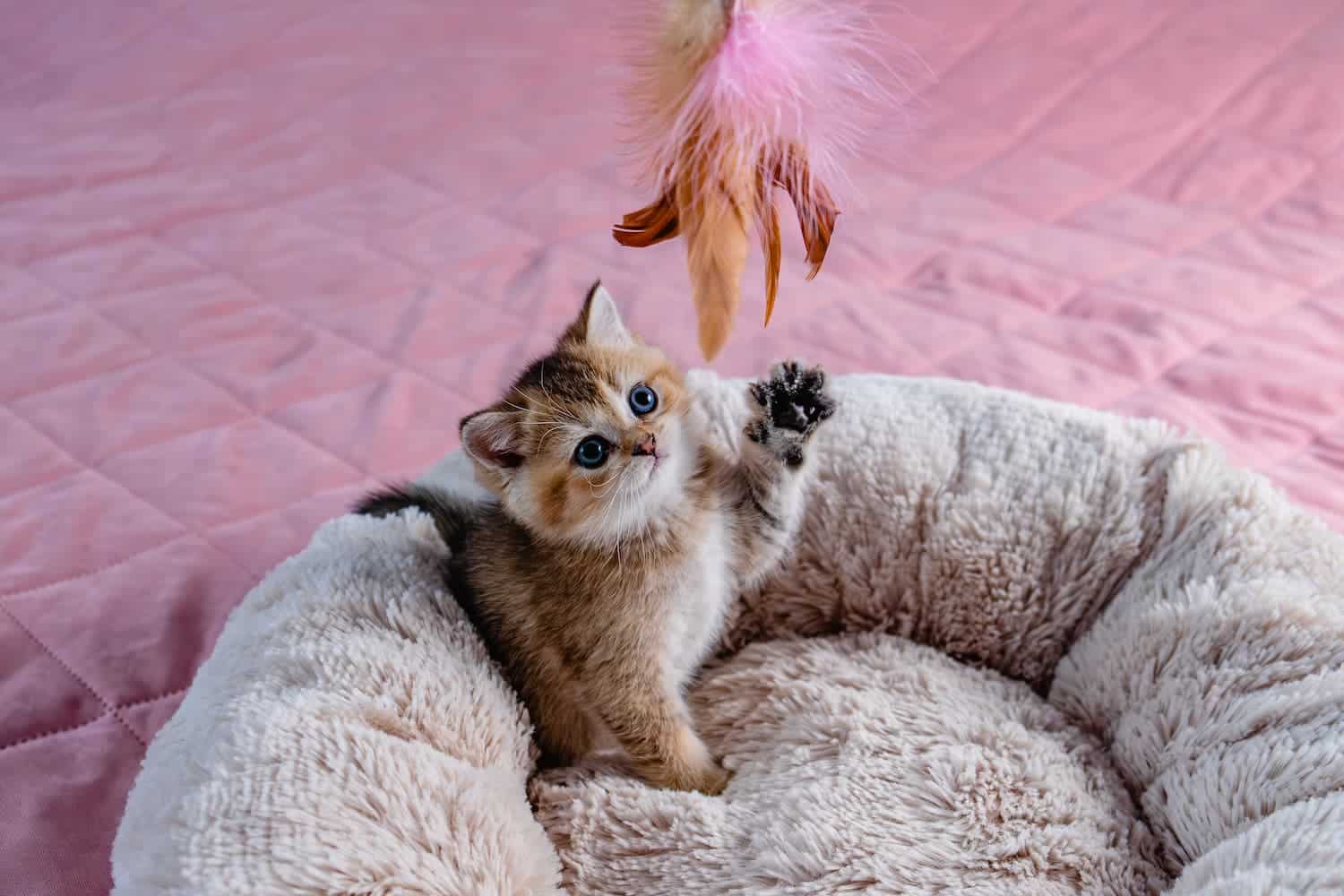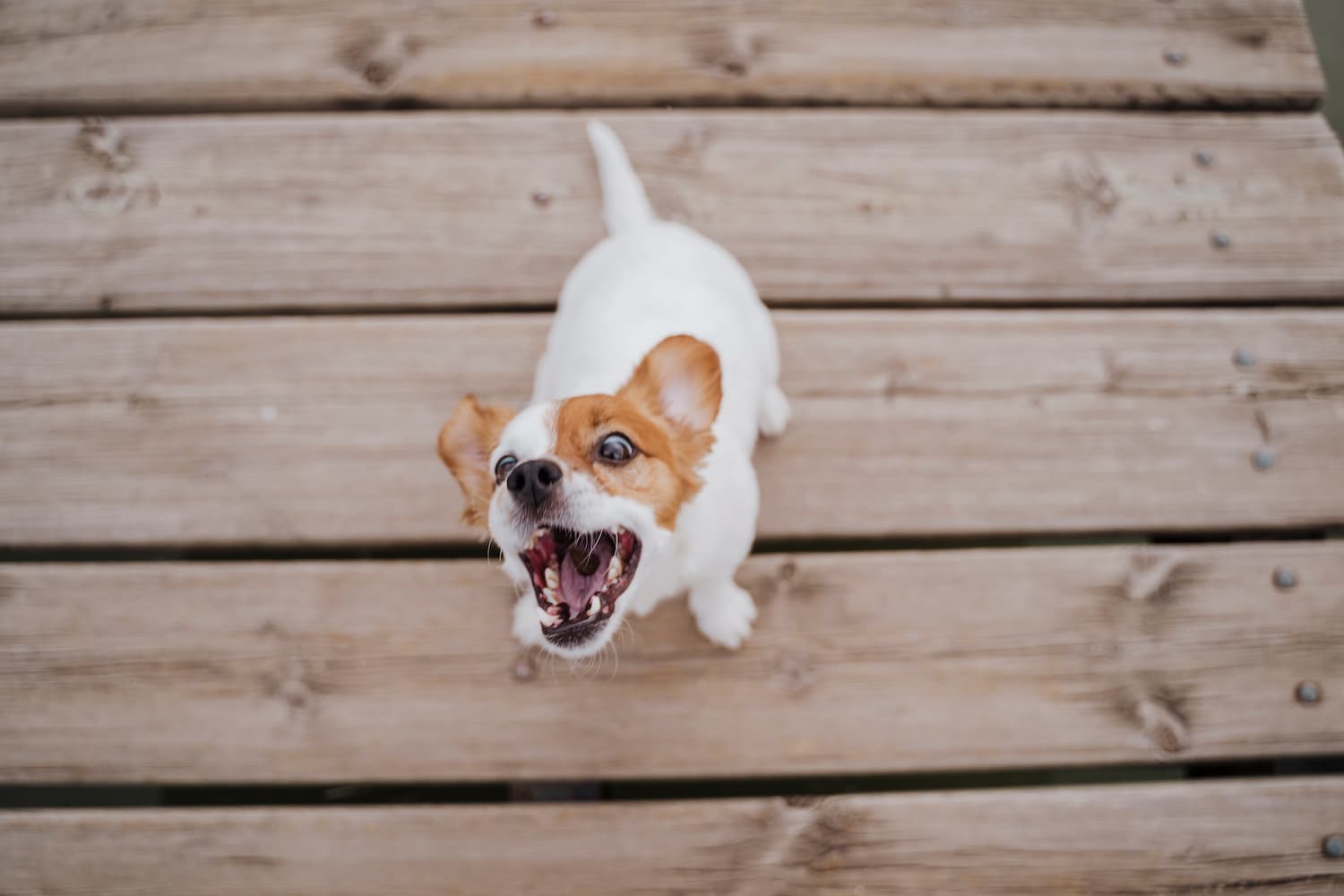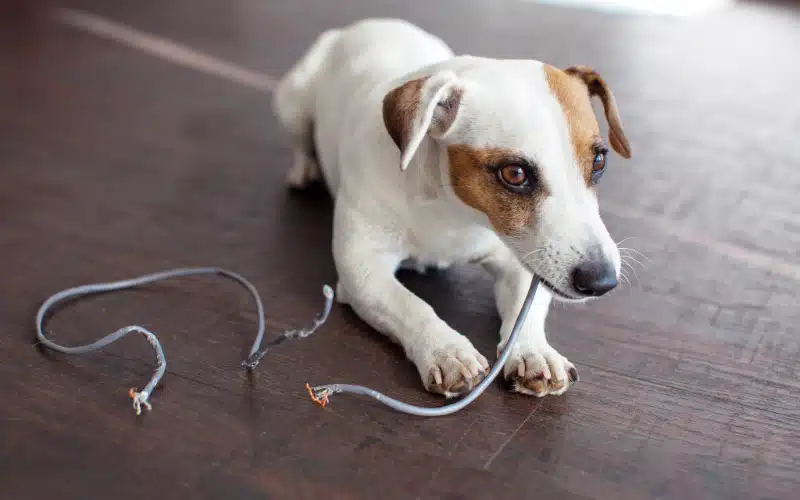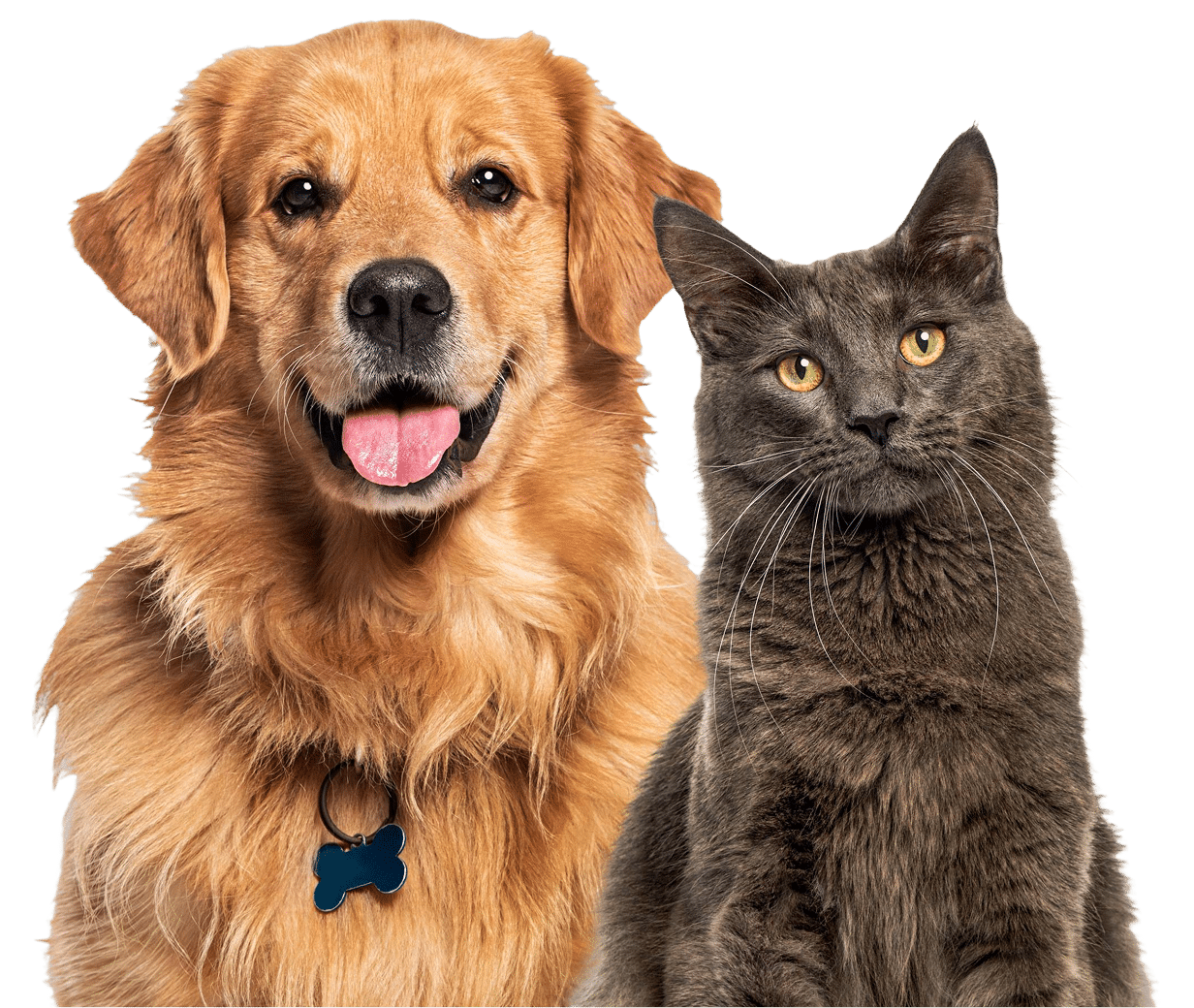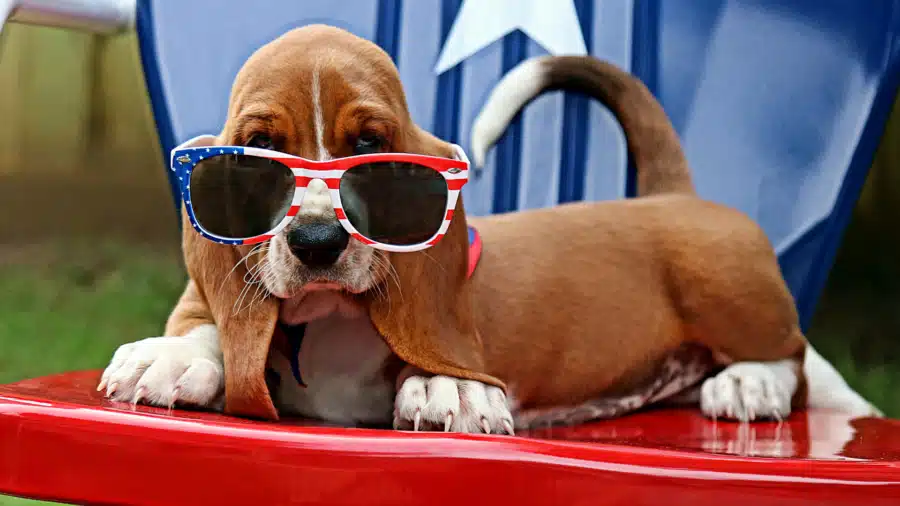
Fourth of July Pet Health and Safety Tips
The Fourth of July often means backyard BBQs, fun with family and friends, and fireworks. Of course, we love to include our pets in celebrations and family time. But for them, these same celebrations may mean stress, fear, an upset tummy, a veterinary emergency, or they may even become lost after escaping from the house or yard.
The day after the Fourth of July is one of the busiest of the year for animal shelters, who typically take in hundreds of lost and terrified pets who have fled their yards and homes trying to outrun the fireworks noises.
Fortunately, there are several simple ways for us to safeguard our pets and keep them comfortable, stress-free, and safe this time of year. Keep these pet-friendly safety tips in mind as you gear up for the big holiday.
Backyard BBQs
One of the most enjoyable parts of any summer celebration for many is the backyard party or BBQ. Although it may be fun to include your pet, be aware of the following dangers for dogs and cats:
- Keep your pet away from the grill and other picnic foods to keep them safe. Human foods such as alcohol, avocados, grapes, and onions are toxic for pets.
- Bones, even cooked bones, can cause an intestinal blockage called a foreign body obstruction, which may require emergency surgery.
- Ask your guests not to give any treats or table scraps to your pets, keep trash cans tightly closed, and keep leftovers out of reach of pets. Pets who ingest table scraps or trash are at risk for pancreatitis, a painful and life-threatening disease. And corn cobs, among other foods, often require surgery to remove as they can get blocked in the intestines.
Pets and Fireworks
For your pet’s safety and well-being, don’t take them to fireworks shows. Keep them home and indoors, where they will be safe and sound. If your pet is in earshot (or will see) fireworks near your home, there are a few things you can do before the show begins to ensure they stay calm and safe during the festivities.
- Walk your property to ensure the yard is secure. If your neighbors set off fireworks unexpectedly, would your pet be able to escape?
- All cats and dogs should wear their ID tags and collars with your correct contact information, even in the house.
- If your pet is not already microchipped, now is a great time to consider having one placed. A microchip is your pet’s best chance at a reunion with you should they become lost.
- Take your dog for a nice long walk before the celebrations begin. Exercise releases tension and anxiety, making it easier for your pet to relax.
- Create a safe space for your pet to hunker down. This could be a back bedroom, a laundry room, or even a bathroom. If your pet is crate trained, their crate is a great choice. Make sure your pet has their bed, food, toys, and other necessities in their safe space, check on them often, and distract them with yummy treats, a frozen Kong toy, and your loving attention.
- If you have a white noise machine or radio, turn it on to mask fireworks noises. You can also close any curtains to dampen bright lights and sounds.
- Consider purchasing a Thundershirt to use for very anxious pets. This product has been clinically proven to reduce pet anxiety in many situations, including fireworks shows.
- If you know your pet has extreme anxiety, call your primary veterinarian well ahead of time to discuss a prescription of anxiety-reducing medication for the big night.
Fireworks Burns and Toxicity
Unfortunately, fireworks can pose additional dangers for pets aside from the anxiety they may produce. Fireworks get extremely hot very quickly, and if your curious dog investigates or chases lit fireworks or sparklers, serious burns to the mouth, paws, and nose can result. Some fireworks contain projectile elements that if used improperly can cause an ejected shell to hit the pet, causing skin or fur burns in addition to trauma. Roman candles are known for posing this danger.
The colors that can make fireworks so beautiful are made possible by heavy metals, such as mercury, copper, phosphorus, and barium. Fireworks also contain a variety of chemicals such as potassium nitrate. These heavy metals and other agents are toxic, even lethal, to pets if ingested either before or after ignition. Make sure any spent fireworks are cleaned up right away, and keep all fireworks out of your pet’s reach before, during, and after the festivities.
The Fourth of July can be a wonderful holiday (it’s America’s birthday, after all!) so to keep it stress-free for pets and pet owners alike, we strongly recommend following these tips. But just in case you need emergency care for your pet, we will be there, 24/7. If you have any concerns about your pet’s health please don’t hesitate to contact us.
